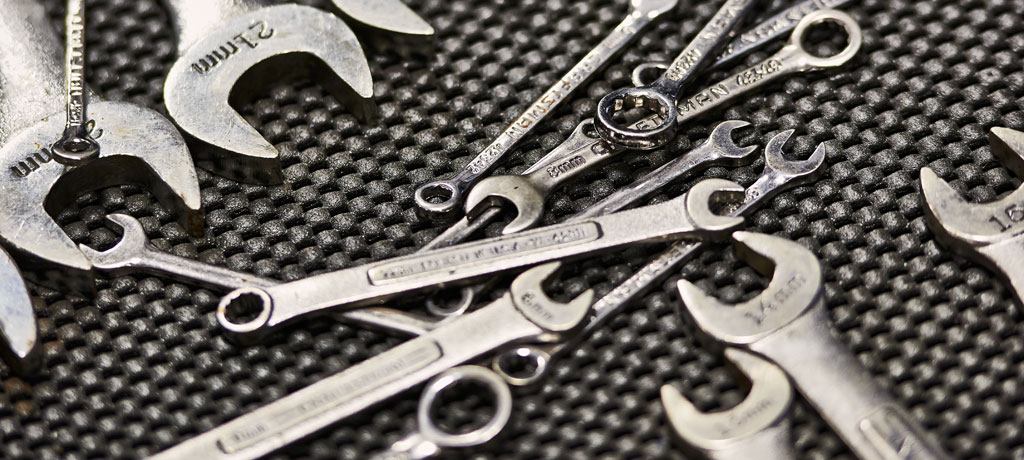Car Tune Up: Warning Signs & Complete Checklist
A car tune up can certainly be an ambiguous request or service, as it can mean different things for different people. Some car owners refer to an auto tune up as merely a regular check-up, to make sure that their car is in good shape and everything is working correctly. Others may refer to an engine tune-up, which involved changing a series of components to ensure proper functionality. Below, we’ll break down what an auto tune up is, when you need it and what the checklist should look like.

What Is an Auto Tune Up?
A tune up service is made up of two parts: the inspection and the actual tune up. The inspection includes a visual check of the engine’s fuel-system components to ensure that the fuel filter is clean and unclogged, that no damage has been caused to the fuel pump, and that fuel injector is also clean.
The inspection also covers spark plugs appearance and performance, checking the engine’s PCV valve, ignition timing, air filters, as well as oil and coolant levels.
The tune up car service depends on the results of the inspection, but in order to ensure your engine receives the right proportions of air, fuel and spark, this may include replacing the cap, rotor, spark plugs, wires, and PCV valve. It can also include replacing air, oil, and fuel filters.
Signs Your Car Needs A Tune Up
It’s easy to get frustrated when your car doesn’t quite work the way it’s supposed to. When your car does something funny or unwanted, it’s a possible indicator that there is a deeper problem.
You can save yourself some time and a headache by being familiar with common warning signs, and by always taking it into the shop when something comes up. Consider some of the most common indicators, listed below.
- Engine lights come on: It’s always distressing to see those little check engine lights illuminate your dashboard and you may be tempted to ignore them. But those lights come on for a reason. It’s the car’s diagnostic system alerting you to a pressing maintenance issue. When the lights come on, it’s in your best interests to take the vehicle in for prompt servicing.
- Stalling: Ever press your foot on the pedal to accelerate, and the car just lags there for a moment before finally starting to move? This stall could be a warning sign, and it’s not something you want to ignore; if nothing else, stalling is dangerous in and of itself.
- Fuel economy: Pay attention to how often you’re filling up at the pump. If you suddenly start needing to fill up more often, diminished fuel efficiency might be a negative side effect. That’s reason enough to take the car to the shop and see what’s going on.
- Brake problems: Any problem with your brakes is a safety concern and something to investigate right away. Brake problems come in a variety of forms, and in some cases, it’s as simple as a brake pedal that feels soft or spongy. Also, be aware of noisy brakes. Whining or scraping sounds are common symptoms of a failing brake system.
- Rough shifting: Your car’s automatic transmission system should handle the gear-shifting process pretty smoothly. If you find that you’re suddenly getting lurched around by the shifting, that might mean there is a transmission issue.
- Vibrations or shaking: If braking, steering, or starting your vehicle causes a wobbling or shaking sensation in the steering wheel or in the seat, there could be any number of issues. Best to get it investigated by the professionals!
Car Tune Up Checklist
Performing a car tune up can extend the life of your vehicle. It can also make regular services a lot cheaper. Here’s our car tune up checklist, which will help you keep track of the most common parts that are replaced when tuning up a vehicle.
- Ignition – this is commonly the first system to be checked, as it includes your spark plugs, plug wires, coils, and other electrical components.
- Filters – to make sure contaminating particles are kept out of the vehicle’s vital components, the oil, fuel, air, and cabin air filters should be checked and replaced.
- Belts & Hoses – these transfer the rotating force, respectively fluid to all your car systems and throughout the engine, therefore inspecting and replacing them is vital.
- Fluids – to ensure that each type of fluid is at its recommended level, engine oil, coolant, brake fluid, transmission fluid, and power steering fluid should all be checked and replaced or topped.
The bottom line is that if something unusual starts to happen with your vehicle, you need to take it to an auto care professional to get a proper diagnosis. You’ll want to make an appointment for an auto tune-up and get things taken care of before they get out of hand. Find a car tune-up shop near you.
FAQs:
Q: How often should I get a tune up?
A: How often you should get a tune up varies by vehicle. Older cars with non-electronic ignitions should be tuned every 10,000-12,000 miles or every year. Newer cars with electronic ignitions can go 25,000 to 100,000 miles. Check your owner’s manual for specific recommendations on auto tune up intervals.
Q: What are the benefits of a tune up?
A: The major benefit of an auto tune up is that it ensures your car functions properly and it prevents further damage. Depending on what the tune up involves, other benefits may include increasing the car’s efficiency with new fuel filters, increasing mile efficiency with new spark plugs, and many more.
Q: How can I make my car run better?
A: An auto-tune up will certainly help your car run better, but proper maintenance and regular servicing are also important. However, if you feel your car is sluggish or experience any of the warning signs above, be sure to bring it in for a car tune up.
Q: Are tune-ups necessary?
A: A car tune up should not be overlooked, as you won’t really know if it’s necessary or not until the inspection has been completed. It’s an important part of your car servicing.
Q: How much does it cost?
A: The cost of an auto tune up depends on many factors, starting with the make and model of your vehicle and ending with the results of the initial inspection.
Car Tune-Up Services with Meineke
Learn about the Tune Up services provided at your local Meineke Car Care Center.





